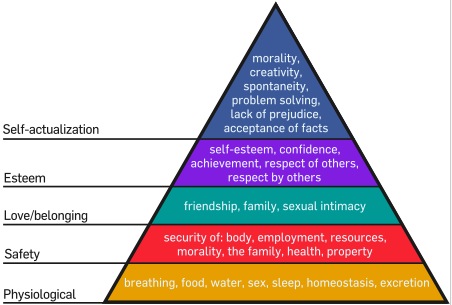MBA Studio’s mantra is, “when Adcom talks, listen.” Don’t just hear. Really, really listen because these are the people who are choosing the few and dinging the many. The Chicago-Booth 2011 MBA application essay questions were posted on July 7, along with a post from Rose Martinelli, Chicago-Booth’s Associate Dean for Student Recruitment and Admissions, explaining the thinking behind each, including the new “blank pages” essay:
“Our essays continue to be a wonderful way for us to learn about what makes our applicants unique and determine if they are the right fit for Chicago Booth. Here is some insight as to what we’re looking for in each essay.”
1. The Admissions Committee is interested in learning more about you on both a personal and professional level. Please answer the following (maximum of 300 words for each section):
a. Why are you pursuing a full-time MBA at this point in your life?
b. Define your short and long term career goals post MBA.
c. What is it about Chicago Booth that is going to help you reach your goals?
d. REAPPLICANTS ONLY: Upon reflection, how has your thinking regarding your future, Chicago Booth, and/or getting an MBA changed since the time of your last application?
“These short essays will require you to know yourself. You will need to understand where you have been and where you are going. Before you begin drafting the responses to these essays, take some time for self-reflection. Why do you want to return to school? Why is the MBA the right degree for you?
“We know that many of you will use your MBA experience to help you figure out what kind of job to pursue next. Even though your future career plans may not be clear at this time, you should still be able to discuss your goals and how they relate to obtaining an MBA.
“For our reapplicants, question 1d is where you can tell us what, if anything, has changed since the time of your last application. What has occurred in your life or career that has either reinforced or changed your goals? What lessons have you learned or how have you grown since you last applied to Chicago Booth?”
2. Chicago Booth is a place that challenges its students to stretch and take risks that they might not take elsewhere. Tell us about a time when you took a risk and what you learned from that experience (maximum of 750 words).
“You’re probably wondering, “What kind of risk do you want me to discuss?” To be honest, we’re not looking for one kind of risk in particular. It can be a risk related to your professional, academic or personal life. It can be a risk that resulted in either a positive or negative outcome. We want to hear about a time when you challenged yourself and what you learned from that experience. How has that experience influenced your future actions?”
3. At Chicago Booth, we teach you HOW to think rather than what to think. With this in mind, we have provided you with “blank pages” in our application. Knowing that there is not a right or even a preferred answer allows you to demonstrate to the committee your ability to navigate ambiguity and provide information that you believe will support your candidacy for Chicago Booth.
“Earlier this year, there was some discussion as to whether we would continue using the presentation as part of our evaluation process. With the presentation proving to be such an important tool in helping us determine who is a good fit for Chicago Booth, we decided it was necessary to include in our 2011 application. However, this year, we are giving applicants even greater freedom to decide what information they want to convey in the presentation.
“Since we’re providing you with “blank pages,” what you decide to address in your presentation is up to you. Look at the other aspects of your application. Are there messages or activities that you have not yet been able to communicate to the committee? If so, then the presentation will be an opportunity for you to provide us with this type of information. After reviewing your presentation, we want to have a better understanding of who you are and how you think.
“Also, please remember that it is the content – not the design – that should be the focus of the presentation. We understand that not everyone is a design guru. So, whether it’s through photos, images, graphs, or just words, the goal is to communicate your messages as effectively as possible.”
So what is Rose saying? The essays tell her and her committee who among the applicants is unique, and why so, and (conversely) whether they will fit in. They demand you know yourself well, that is provide evidence of genuine self-reflection. They value risk-taking and the self-insight it brings. Like many other programs these days, Chicago-Booth doesn’t expect you to have a career blueprint, but does expect you to have thought carefully about your goals, and therefore why you need an MBA now.
When it comes to the blank pages essay, Martinelli hasn’t said much, at least not yet. The core of it is clearly contained in the term “navigate ambiguity.” My take is Chicago-Booth wants to see what the applicant can produce in unguided, unstructured situations. Are you just good at following instructions (such as essay prompts); or are you even more capable? That is, can you determine and select compelling material to share with Adcom without any specific guidance. Can you set the agenda rather than merely follow it?

